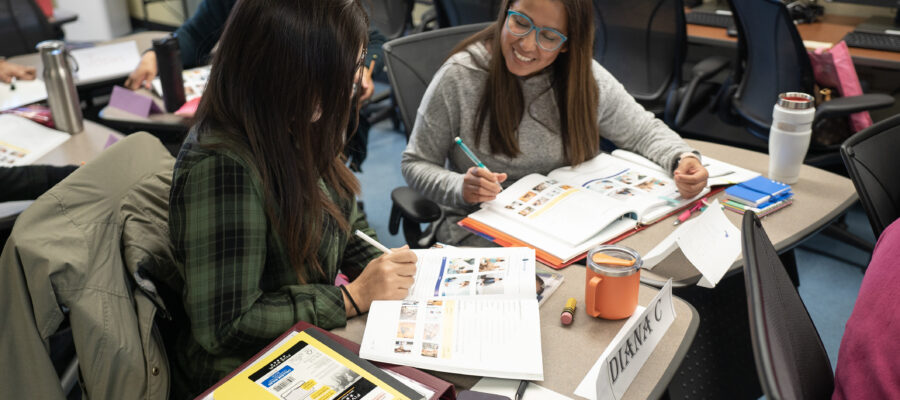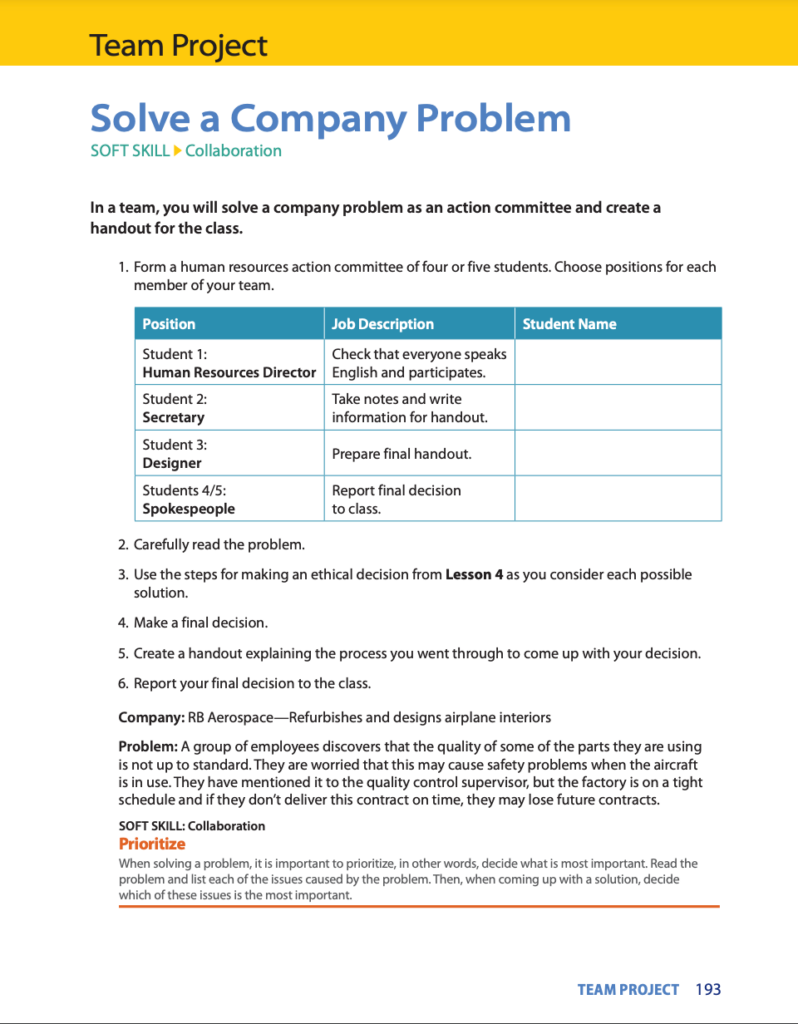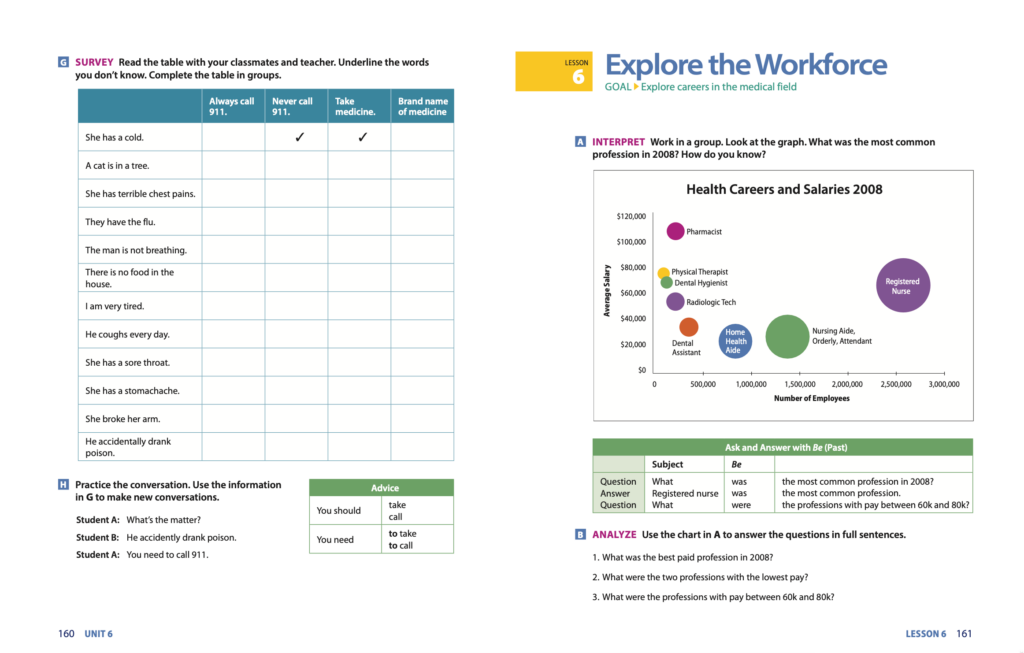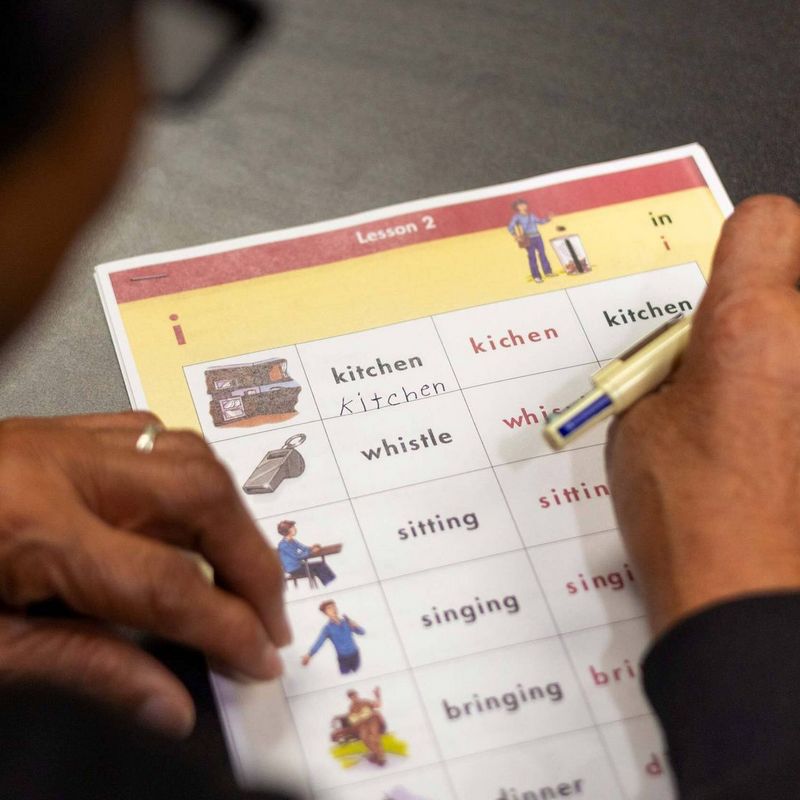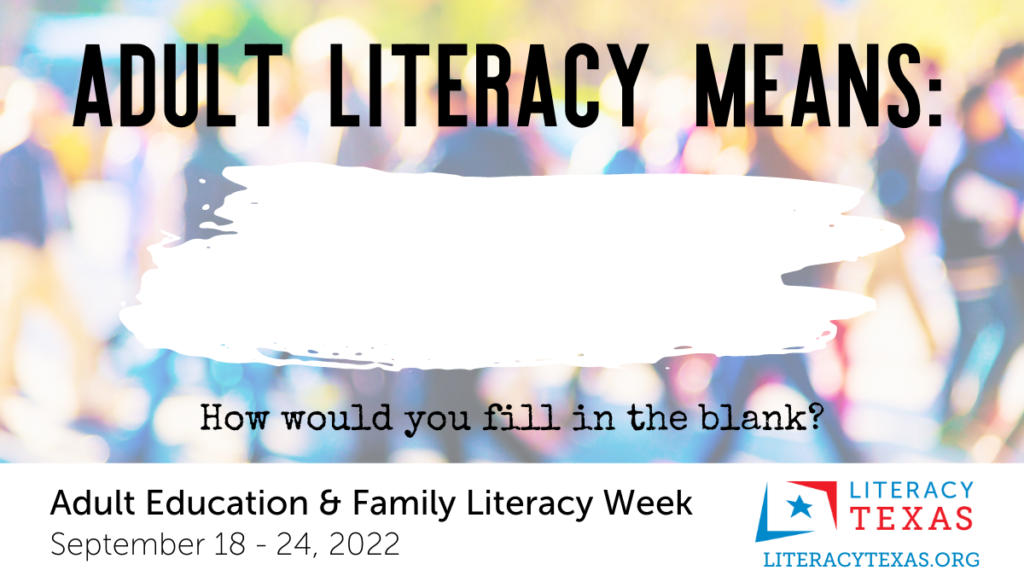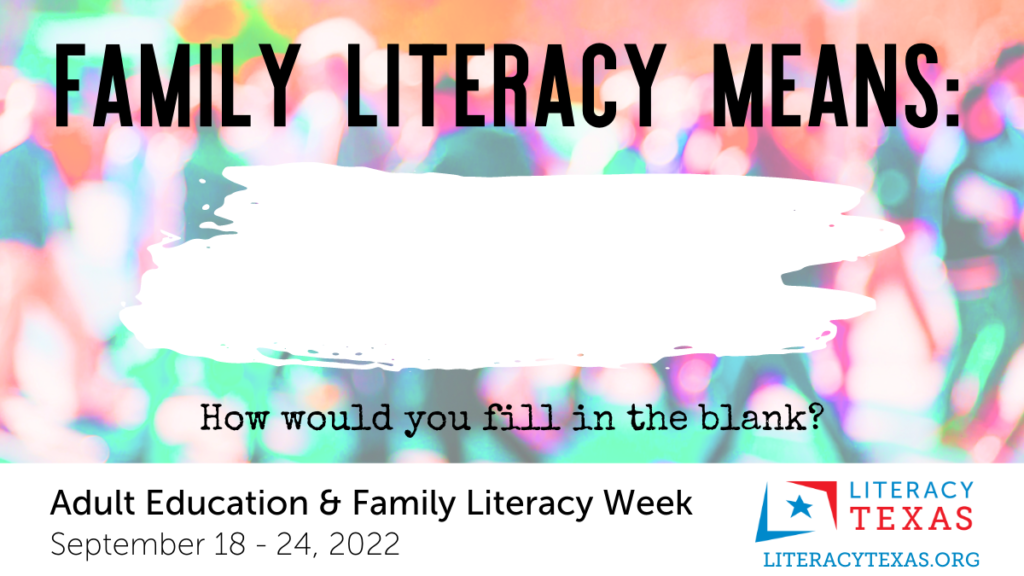Every year in September, we celebrate literacy.
So –
Happy Literacy Month!
As we begin this special month of celebration, there are all kinds of ways for you to get involved:
Complete the Literacy Texas Needs Assessment and help us make sure the upcoming year of training and advocacy gives you what you need. You’ll also be in the running for prizes! Already completed it? Please share with a Texas literacy colleague – we want as many responses as possible!
Celebrate International Literacy Day on September 8, which this year has the theme ‘Promoting literacy for a world in transition: Building the foundation for sustainable and peaceful societies’.
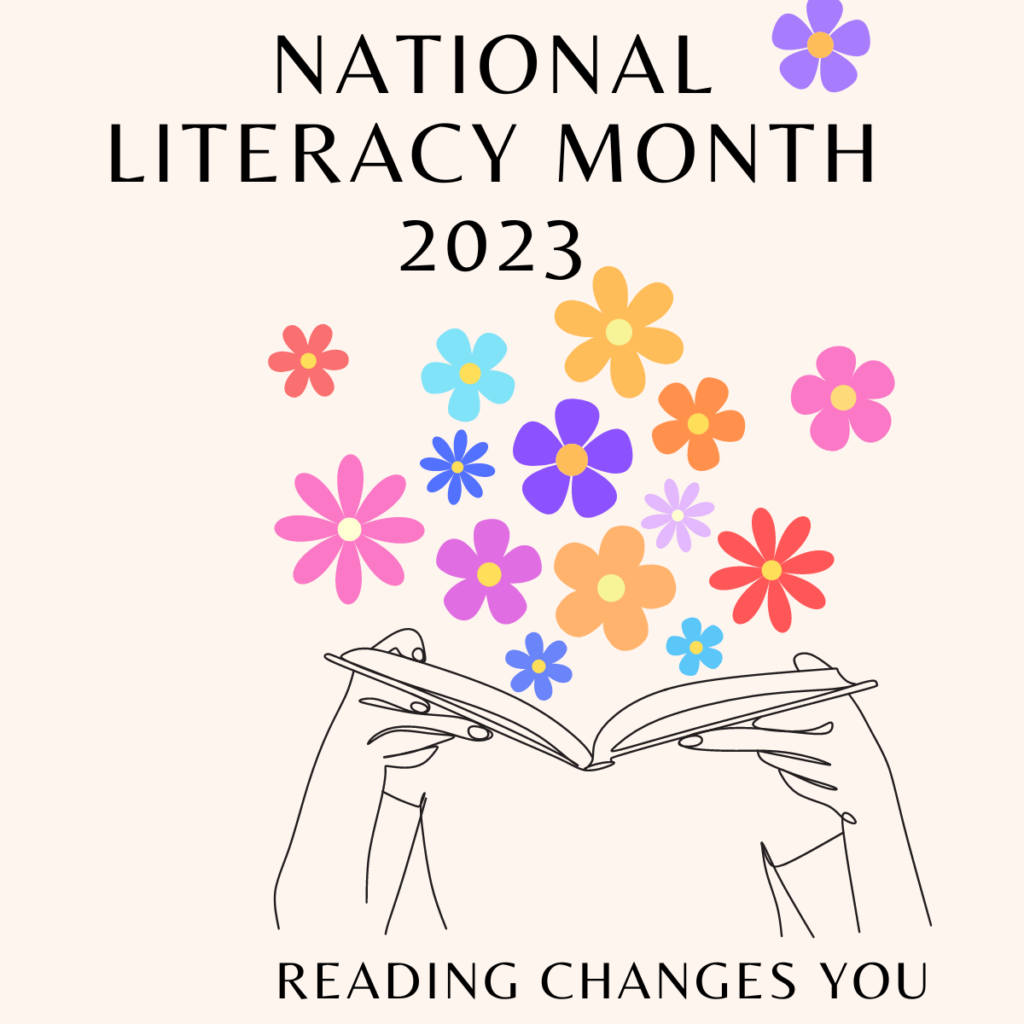
Dive into Adult Education and Family Literacy Week (September 17 – 23), using quality toolkits and advocacy materials prepared by leading literacy orgs.
Relax with the Texas Great Read book choices for 2023, announced in mid-August by the Texas Center for the Book at the Texas State Library and Archives Commission. And if you’re in Houston or nearby, add the 2023 Gulf Coast Reads book to your pile as well, ready for October.
And – the new Literacy Texas grant year starts on September 1, along with our new calendar of training and events. Because literacy transforms Texas! And YOU help make that happen.
Get Texas literacy updates
Make sure you’re on our mailing list so you don’t miss any news:
- Conference updates
- Regional symposia
- Online training
- Advocacy
- …more!


